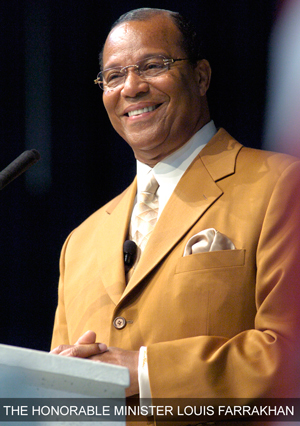My original intention was to merely point out that this stuff goes on throughout the diaspora and the continent. Next time you go to the barber beauty supply store that sells products for Black people, ask to see the skin lightening products. They are surely in stock. Store owner stocks them because they sell. Companies have been advertising in Black media for DECADES because people purchase the products.
I pointed out the differences between the products used in this country and the products used in foreign countries or ethnic stores catering to Black immigrants. Immigrants and people abroad use banned products. In America the products are regulated by thte FDA or which ever agency regulated skin creams. The banned substances are stronger and put the users in danger of skin cancer and other problems.
Again...I've written this all out in this thread. Next time you go to a pharmacy or beauty supply, ask to see the products. Then when you see them there, ask your self why self space would be devoted to products that don't sell.
If people believe that I'm on some "expert about other people's issues but silent about my own ethnic group's issues" shyt.......do a search for the topic of "child slavery" in "Haiti" on the coli. Restavec or child slavery is 10,000% more serious topic than skin bleaching. That thread had some of the same types of deflections that are in this thread...and I called BS on it, like I'm doing here.
You got the right person - as my B.S. is in Advertising/Marketing.
I see them in stores - but it's like 2-3 products - Palmers, Ambi and Nambi-something. And they don't market themselves as "skin lightners" - but something for "dark spots/scar/fade cream."
An advertiser is always looking for new consumers. They will continue to target a segment of a demographic - especially those with dark skin. What do they have to lose? Especially, if it's low-cost to do so. It's a lead for potential sale/consumers. That's all. But, that still doesn't mean it's selling to Black Americans or that the product is being purchased by Black Americans.
In 2018, where are these brands advertising? If they are advertising... which I doubt.... it's IN THE BACK. WAY BACK of magazines. The only magazines we really have left Essence and Ebony. No one is reading the back of magazines - especially for mini-ads.
So, the visibility for Black Americans seeing those product adverts are zero to none -- put that on top of most are not buying mags anymore.
Sometimes brands like Palmer's have other products they want to sell like Belly butter for stretch marks - and get a free advert in the back as a thank you - but even that is rare these days. As advertising any skin-lightening products is taboo in Black America.
I get RFP's for skin lightening campaigns - and I always decline. Most publications and online sites do so - cause they know Black Americans would boycott and speak out on about it. It's a NO for Black Americans.
So, where do Black Americans see these products? In Chinese/Korean/Asian beauty shops and grocery stores - but that doesn't equate to purchases.
Black barbershops and hairsalons - are not Black American exclusive - meaning other Black people who are 1st/2nd/immigrant frequent. And I have never seen skin-whitening products in a salon or barbershop. Not in a Black neighborhood or Black shop in general.
So, i'm sorry I don't believe it. If they are in barbershops - best believe that are not Black American owned -- or frequented by only Black Americans.






 That's it, I'm done. You nikkas is crazy.
That's it, I'm done. You nikkas is crazy.

 face
face 
